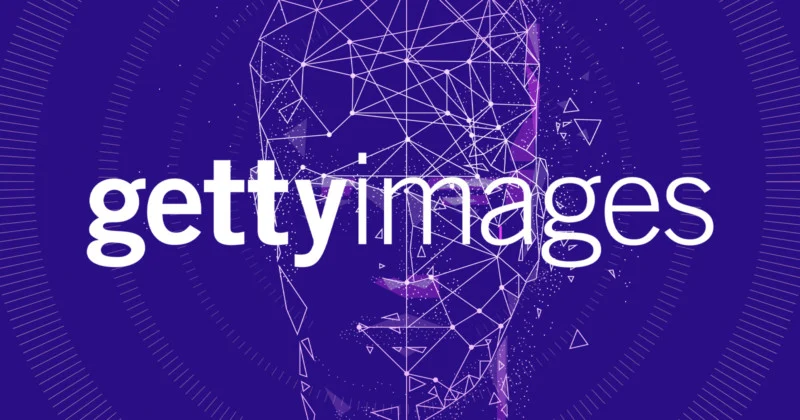Getty Images, one of the most recognized names in the stock photography industry, is making a significant leap into the realm of artificial intelligence (AI) with its announcement to generate AI-created images. Known for its vast collection of high-quality photographs sourced from professional photographers worldwide, Getty is set to redefine the landscape of stock photos through the integration of AI technology. In this article, we will explore Getty’s new initiative, the implications for the stock photography market, and the potential benefits and challenges associated with AI-generated images.
The Emergence of AI-Generated Images
AI-generated images are not an entirely new phenomenon; they have been under development for several years. Numerous startups have attempted to leverage this innovative technology to disrupt traditional stock photography, yet many have encountered challenges in gaining market traction against established players like Getty, Shutterstock, and Adobe Stock. Getty’s entry into AI-generated imagery is noteworthy, primarily due to its status as a leader in the industry and its capacity to influence the market significantly.
What to Expect from Getty’s AI-Generated Images
Getty plans to utilize advanced machine learning algorithms to create images that meet specific customer demands. Users will have the ability to input keywords and various parameters to guide the image creation process, ensuring that the final output aligns closely with their needs. The company emphasizes that these AI-generated images will be unique and diverse, reflecting the evolving requirements of its clientele.
Moreover, Getty’s commitment to quality remains paramount. The organization asserts that the resulting images will maintain high standards of authenticity and relevance, offering a fresh perspective in stock photography. By merging technology with creativity, Getty aims to provide users with images that not only fulfill their specifications but also resonate with the themes and narratives they wish to convey.
Competitive Landscape
Getty’s decision to explore AI-generated images comes in tandem with similar initiatives from its primary competitors. Notably, Shutterstock has introduced a service known as Shutterstock Custom, which allows users to create tailor-made images using AI technology. However, Getty’s extensive market reach, established reputation, and vast library of existing images may provide it with a competitive edge.
Potential Advantages of AI-Generated Images
One of the most discussed benefits of AI-generated images is the potential cost-effectiveness. While Getty has yet to announce specific pricing structures, the reduction in production costs through automation could make stock photos more affordable. This development would particularly benefit small businesses and independent creators who may have previously found professional photography costs prohibitive.
The ability to generate images quickly and on-demand is another significant advantage of AI technology. Customers can receive tailored images almost instantaneously, eliminating the typical waiting times associated with traditional photography. This speed and efficiency can prove invaluable for businesses that need to respond quickly to market changes or promotional opportunities.
Concerns About Quality and Authenticity
Despite the potential advantages, there are valid concerns regarding the quality and authenticity of AI-generated images. Critics argue that these images may lack the emotional depth, creativity, and unique perspectives that human photographers bring to their work. Photographic art often captures nuanced moments and feelings that may be difficult for algorithms to replicate. There is a real risk that AI-generated images could come across as generic or formulaic, failing to engage audiences in the same way that authentic human-created content does.
Additionally, ethical questions surround the use of AI in creative fields. The idea of replacing human photographers with machines raises concerns about the impact on jobs and the overall value placed on human creativity. The creative industry has always thrived on the uniqueness of individual artistry, and the introduction of AI-generated images challenges traditional notions of authorship and originality.
Balancing Quality and Efficiency
As Getty moves forward with its AI initiative, finding the right balance between quality, authenticity, and cost-effectiveness will be essential. The company must ensure that the generated images do not sacrifice artistic merit for speed or lower prices. This balance will be crucial for maintaining the trust and satisfaction of its user base, particularly among those who have relied on Getty for high-quality images in the past.
Conclusion
Getty Images’ foray into the world of AI-generated images marks a pivotal moment in the evolution of stock photography. While the concept of AI-created visuals presents exciting possibilities for innovation and accessibility, it also raises important considerations regarding quality, creativity, and ethics.
As the industry adapts to these changes, it is uncertain whether AI-generated images will emerge as a mainstream solution or remain a niche offering. The ongoing dialogue about the role of technology in creative fields will be crucial in shaping the future of stock photography.
Only time will reveal whether Getty’s initiative is a fleeting trend or a lasting transformation within the industry. However, one thing is clear: the intersection of AI and creativity is here to stay, and its impact will continue to reverberate throughout the stock photography landscape.
As this new chapter unfolds, stakeholders across the industry must engage in thoughtful discussions about the implications of AI technology on the creative process, the job market, and the evolving nature of visual storytelling. Getty’s exploration of AI-generated images is just the beginning of a broader conversation about the future of content creation and the role of technology in shaping our visual narratives.

